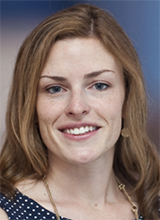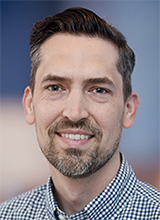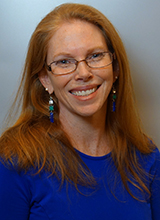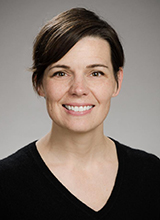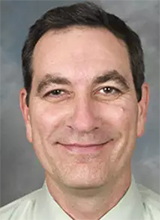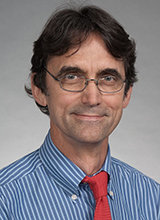
Personal Statement
I am a child and adolescent psychiatrist also trained in pediatrics. The longstanding theme of my research has been on the detection of psychosocial problems in children and families, with a particular interest in what happens at the interface between primary care and mental health care. My initial clinical work as a pediatrician involved families in which child abuse was suspected, and thus my early research on detection of psychosocial problems involved how clinicians might best learn that a given family was experiencing some form of violence.
When I returned to training and became a child psychiatrist, my focus shifted to the more general issue of how, in the course of clinician-child-parent interactions, psychosocial issues were asked about, disclosed, and discussed. I have explored this question from a number of angles, including work in different cultures in the US (African-American, Latin American, American Indian), in different countries (Brazil, Ethiopia, Pakistan, Iran), in differences attributable to provider gender, across a range of sensitive issues (including suicide and end-of-life decision-making), and across clinical settings (pediatric and adult primary care, emergency care, and chronic disease management).
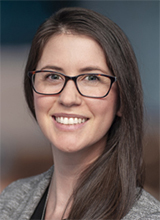
Alysha Thompson, PhD is the Clinical Director and attending psychologist on the Psychiatry and Behavioral Medicine Unit at Seattle Children’s Hospital and Associate Professor in the Department of Psychiatry and Behavioral Sciences at University of Washington. Prior to joining the staff and faculty at Seattle Children’s/UW, she was a staff psychologist on the Adolescent Inpatient Unit at Bradley Hospital and Clinical Assistant Professor in the Department of Psychiatry and Human Behavior at Brown University. She is an active participant in training future psychiatrists and psychologists and currently serves as Chair-Elect of the Acute, Intensive, and Residential Services Special Interest Group of Division 53 of the American Psychological Association, a national group of psychologists.
Dr. Thompson has authored multiple publications regarding inpatient psychiatric treatment for youth and has forged collaborations with psychiatrists and psychologists working in inpatient psychiatry and acute care around the country. In addition, she is actively engaged in advocacy efforts regarding improvement the mental health care system for youth. She is passionate about providing quality services to youth experiencing severe mental health crises and has specific areas of expertise in working with youth with trauma histories and suicidality.
Dr. Thompson completed her graduate education at Suffolk University in Boston in clinical psychology with an emphasis in child and adolescent clinical psychology. She completed residency in pediatric psychology at Rush University Medical Center in Chicago and went on to complete a fellowship in clinical psychology with an emphasis in trauma in children and adolescents at the Trauma Center at Justice Resource Institute.
Personal Statement
My clinical work and research are focused on helping youth with ADHD and their families be resilient and successful. Specifically, I am interested in creating and disseminating behavioral treatments for ADHD and disruptive behavior that are accessible and engaging for families. I enjoy consulting and training with providers in a variety of settings, including integrated primary care, to offer treatments that provide immediate help to their patients. My current research focuses on improving family relationships and health outcomes for youth with ADHD, including preventing risk behaviors and improving active and healthy lifestyles.
Dr. Russell’s professional interests include ADHD, integrated/collaborative care, prevention and complementary/integrative approaches to child and adolescent mental health. He takes a holistic approach to psychiatric well-being that extends beyond medications and psychotherapy to include other evidence-based practices shown to improve brain health including regular exercise, time in nature, supportive social interactions, mind-body activities, good nutrition and sleep hygiene.
Personal Statement
My research focuses on understanding the development of neural circuits that contributing to and underlie social development. Our lab uses a number of different tools: primarily electroencephalography (EEG) and event-related potentials (ERPs), but also eye tracking, cardiophysiology (EKG), neuroimaging, and behavioral measures to study how infants, children, and adults perceive, attend and learn about their social environment. Our projects also focus on the development and validation of biomarkers that may be used to understand the course of development and treatment response in children with disruption in social and communication function such as autism spectrum disorder, 16p11.2 deletion syndrome, and other neurodevelopmental disorders.
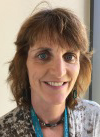
Personal Statement
I am a child and adolescent psychiatrist with experience in delivering guideline-based care for child and adolescent psychiatric disorders. I am the Medical Director of the Outpatient Psychiatry Clinics at Seattle Children’s, and have experience with training of staff to deliver guideline-based care. I also have health services training, including having obtained a Master of Public Health (MPH) in Health Services and participation in a Primary Care-Psychiatry Research Fellowship funded by the National Institutes of Health.
My clinical work includes treatment of outpatients and inpatients with a variety of mental health needs, and I provide telepsychiatry in our outpatient clinics. I have experience with collaboration with primary care providers to deliver care to pediatric patients, including serving as a consulting psychiatrist on the Partnership Access Line, which provides psychiatric consultation regarding mental health assessment and treatment to pediatricians and other primary care physicians throughout the state of Washington. I have expertise in the treatment of common mental health problems in a pediatric population.
My research has focused on mental health care for common psychiatric illnesses including depression and ADHD, and has included utilization of collaborative models of care and testing of interventions for youth with psychiatric diagnoses. I have been a co-investigator, with R01 PI Kathleen Myers, MD, for a study of guideline-based care provided by telepsychiatry for youth in rural communities with a diagnosis of Attention Deficit Hyperactivity Disorder.
Personal Statement
I am interested in methods of evidence translation and knowledge exchange that improve system and policymaking in behavioral health with a focal interest in public mental health for children and juvenile justice system reform.
Personal Statement
I am a Child and Adolescent Psychiatrist who has served for over 20 years as the attending psychiatrist on the middle-schooler unit at Child Study and Treatment Center. I also serve, 25% time , as “College Mentor” in the UW School of Medicine Introduction to Clinical Medicine Curriculum where I mentor six students in each UW SoM class through their four year curriculum. I serve as preceptor/supervisor for one CAP fellow during their rotation at CSTC. I also run the elective clerkship for fourth year medical students (approximately 10 students/year) during 2 and 4 week rotations at CSTC.


